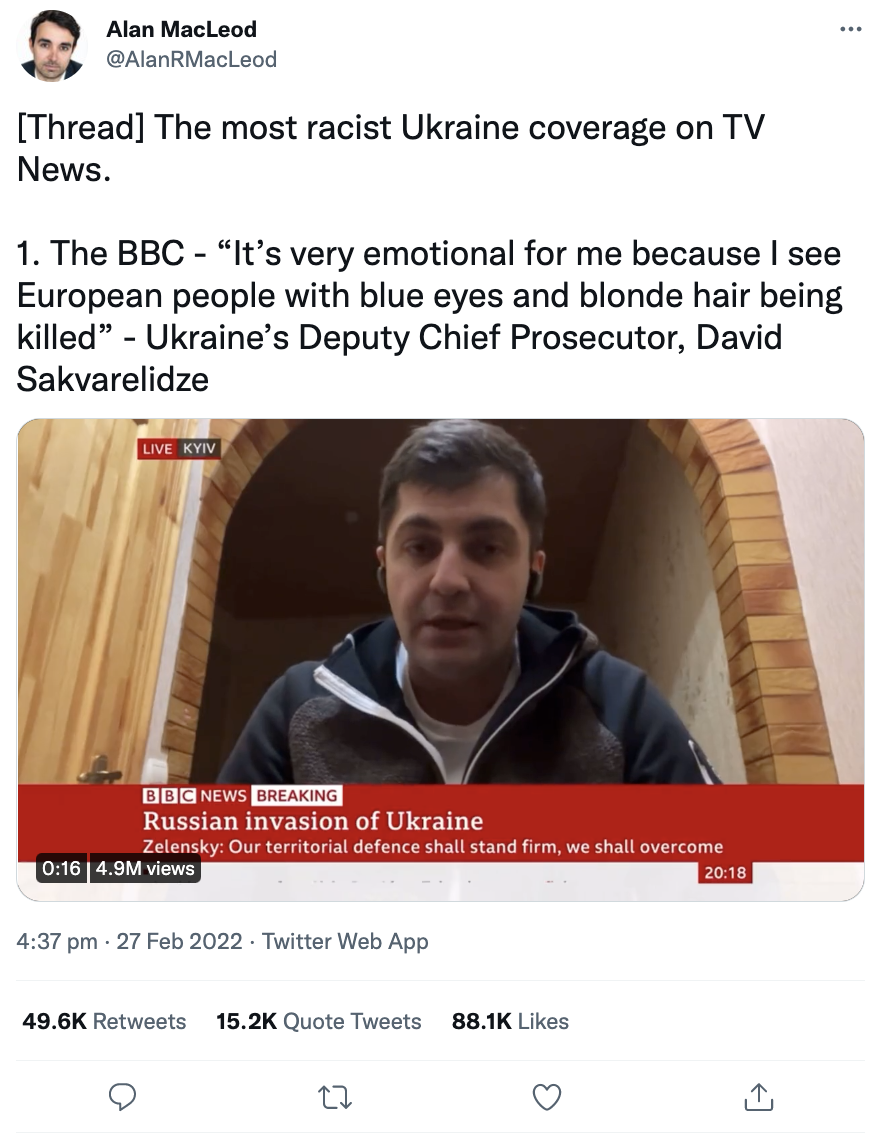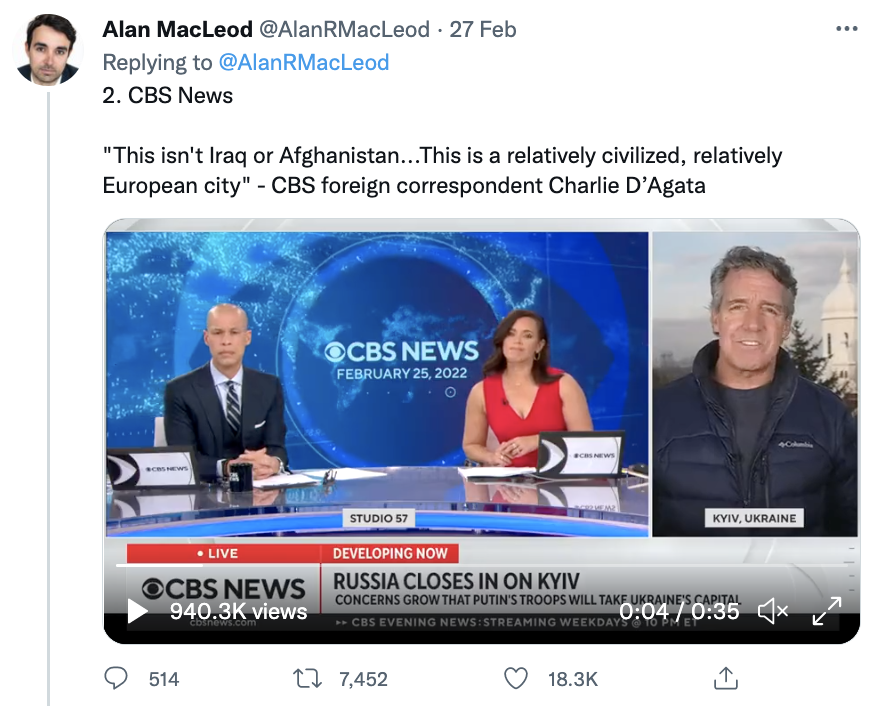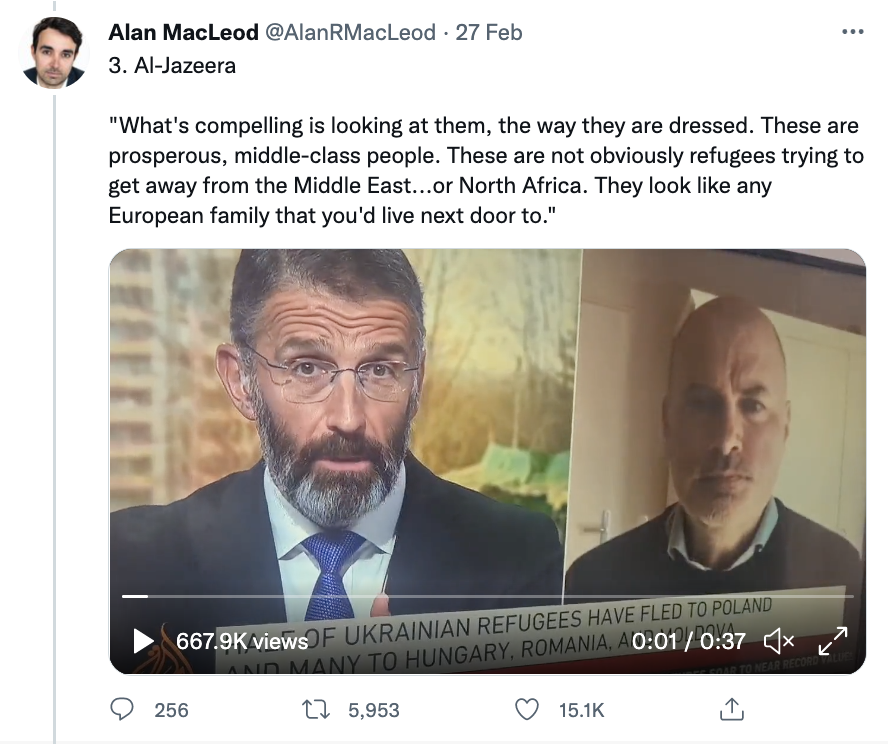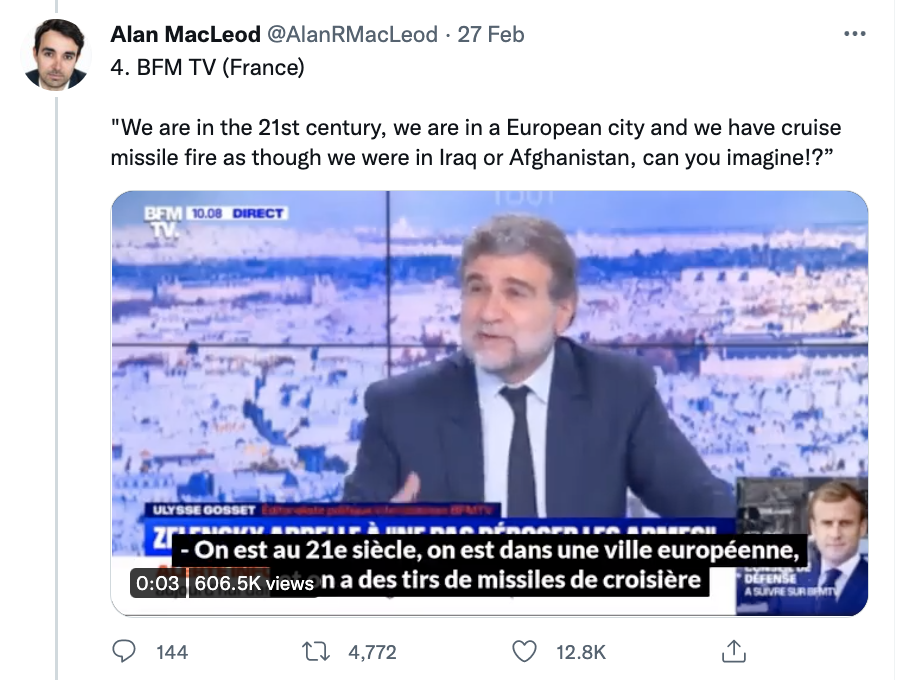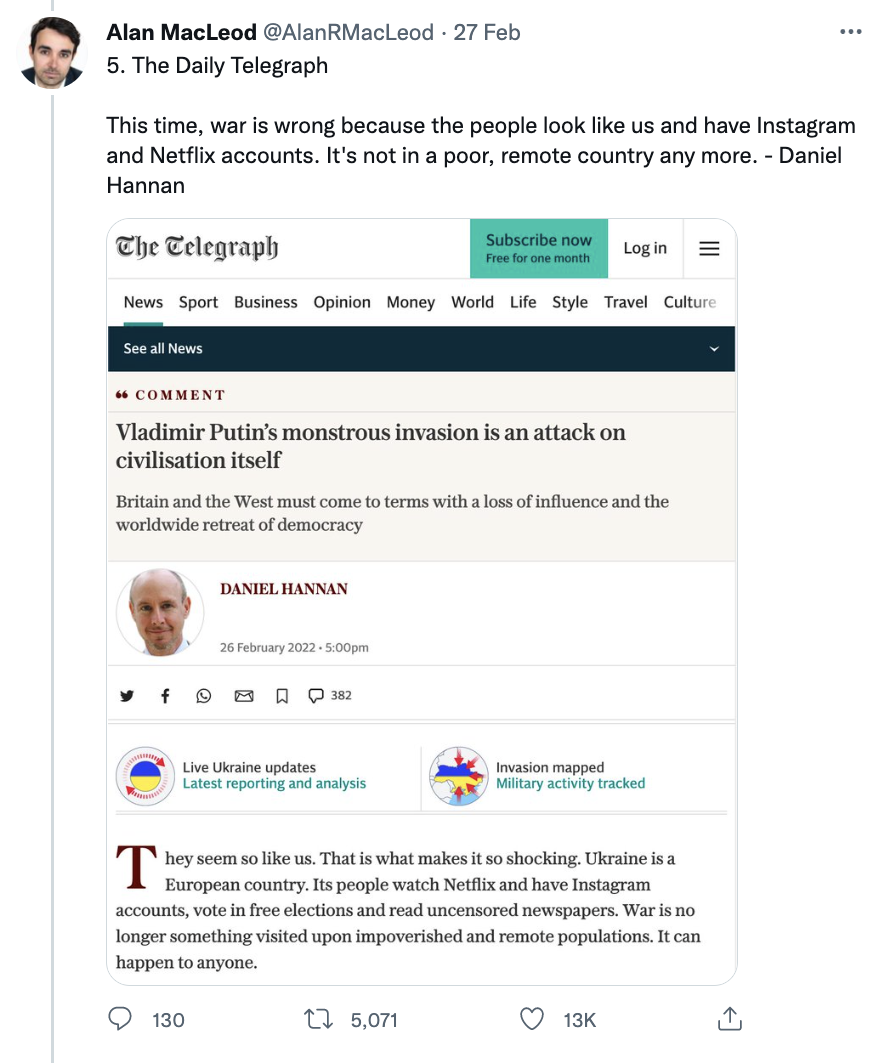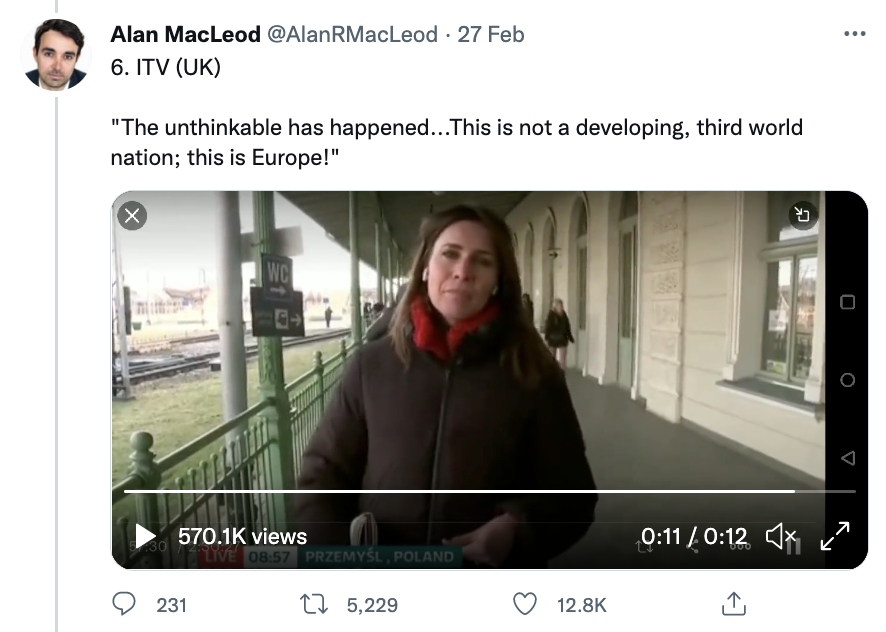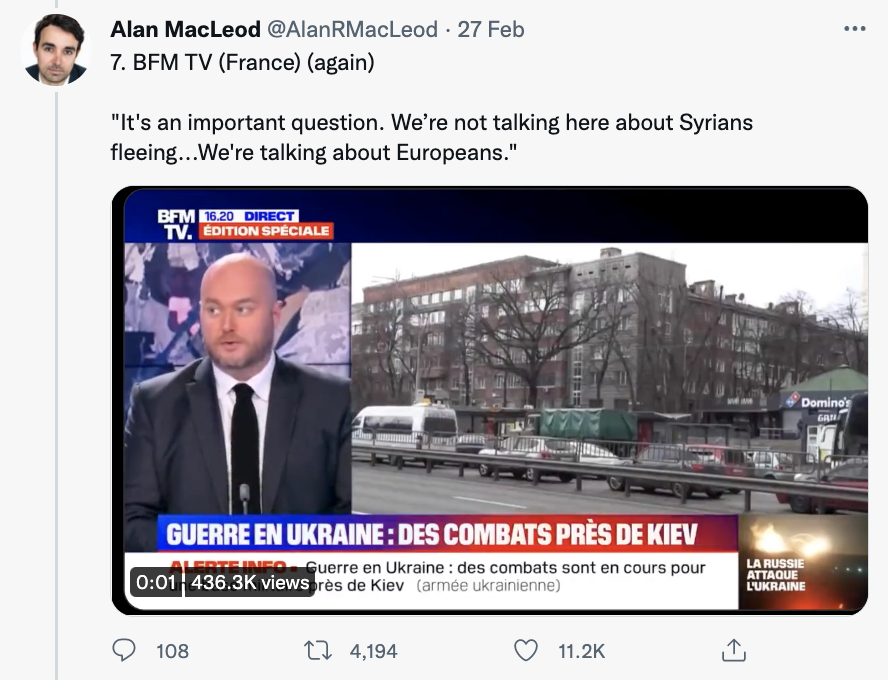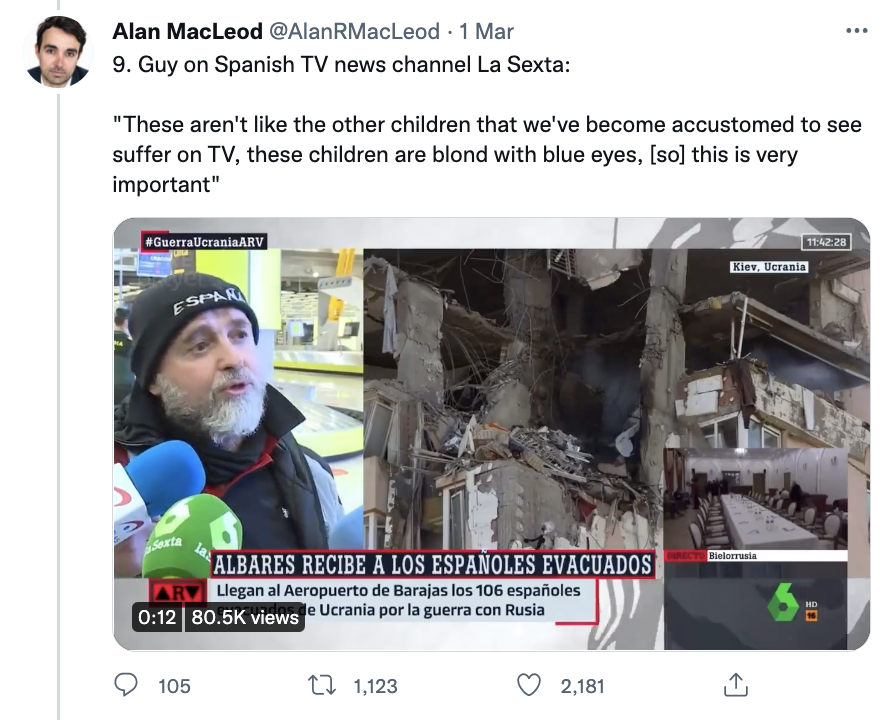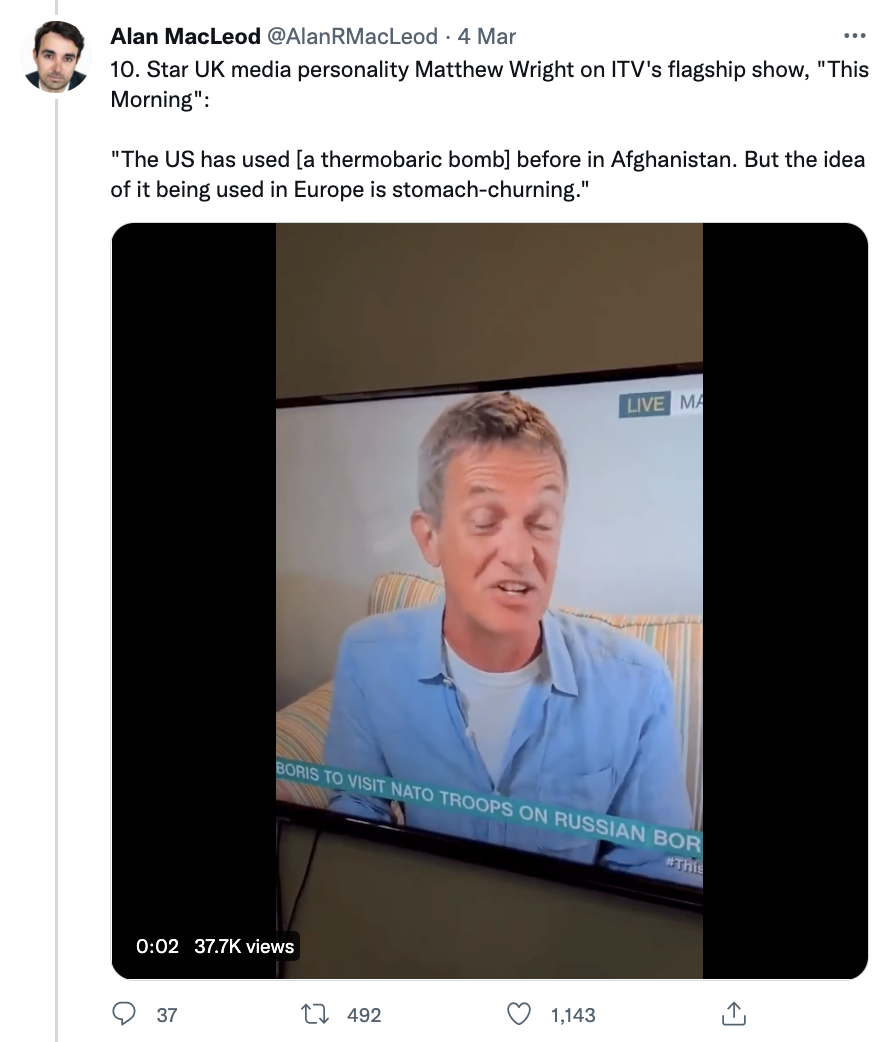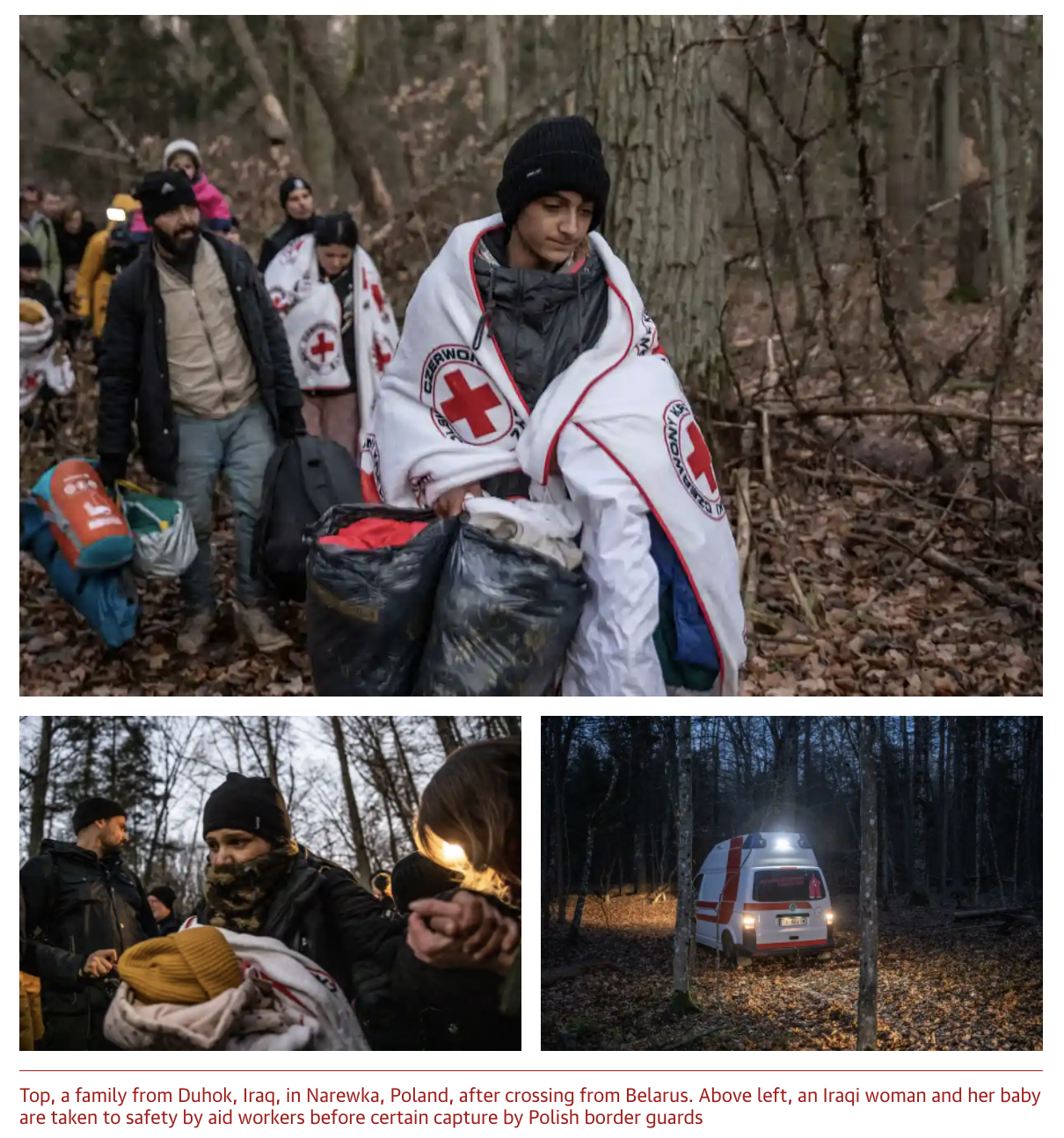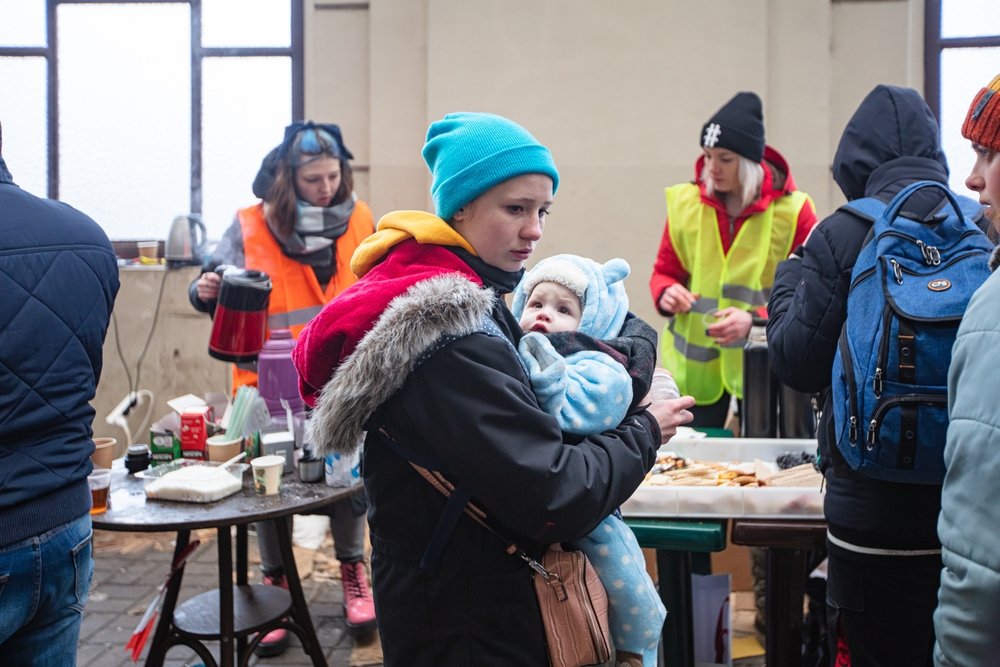European Media’s Double Standards on Refugees and Conflict
By Angelo Boccato.
Editorial credit: Drop of Light / Shutterstock.com
The Russian invasion of Ukraine and the large number of refugees fleeing violence has led to significant displays of European solidarity, with governments following a more open border policy and welcoming those who flee, and citizens offering spaces for those who have nowhere to live. However, the conflict has also exposed the European Union’s double standards when it comes to welcoming refugees.
Leading voices in party politics and journalism across Europe have expressed their shock at a war that is “not happening in a faraway country”, emphasising that Ukrainians should be granted protection and hospitality. Though it may go unspoken, underpinning this broadly welcoming attitude is the fact that most of the refugees from Ukraine are white and Christian.
Many remarks also aim to diminish the experiences of other refugees, by dividing them between “real” and “false”, pointing out that members of the latter group are supposedly not fleeing from a conflict, and therefore should not be helped.
This discourse takes many forms, across different countries and sides of the political spectrum, making visible the pervasiveness and persistence of racism and Islamophobia within European identity.
"[In the case of Ukraine] we are not talking about a massacre between heathens in a remote part of Africa, but (...) I know it sounds 'Politically incorrect', [Ukrainians are] Christians, whites, Europeans who are part of us, they come from us" said Dimitris Kairidis, a member of the Hellenic Parliament for the ruling party New Democracy and a Professor at International Politics at Panteion University, Athens, during an appearance at the Greek TV station SKAI.
At the same time, the Greek Minister of Migration Notis Mitarakis also commented on SKAI that those who escape from Ukraine are “legitimate refugees” as they flee from war. He also emphasised that Greece was ready to support Ukrainian refugees by “providing humanitarian assistance in Poland and neighbouring countries”. This limited definition ignores the 1951 UN Refugee Convention, which describe refugees as any person who has fled their country due to a “well-founded fear of being persecuted for reasons of race, religion, nationality, membership of a particular social group or political opinion and is unable or unwilling to avail himself/herself of the protection of that country, or to return there, for fear of persecution.”
It should be noted that after the 2019 national elections, Greece has been following stricter border controls in its external borders. Also, in recent months there have been revelations of pushbacks – which is a violation of international law – by Greek and European authorities. The Greek government denies these accusations.
On 28 February, a regional edition of Gazeta Wyborcza, the main quality newspaper in Poland, published an article on the situation at the Polish-Ukrainian border. The article focused on the fact that there were people from different nationalities, including young African and Asian men who were crossing the border. It also emphasised that the number of Ukranians seen crossing was much lower, which is false as the proportion of non-Ukrainian nationals among the refugees from Ukraine has been estimated as around ten per cent of the total number.
Screenshot from the Guardian
The piece called the “authenticity” of the refugees in question, suggesting that they were mostly Muslims who might have arrived from Belarus. For the past year, at the Belarusian–Polish border refugees have been left in limbo and have been living in precarious conditions.
The publication of this xenophobic and anti-Muslim piece on a newspaper that is considered a flagship for independent quality journalism in Poland, known for its high-quality coverage of human rights issues, dismayed many. With assistance provided by the Get the Trolls Out! partner 'NEVER AGAIN' Association, the Polish Jewish journalist and activist by Dawid Warszawski published a polemic in the same Gazeta Wyborcza as a response, debunking the article.
Gazeta Wyborcza’s article, which was widely shared by many far-right figures, contributes to anti-Muslim and racist tropes that are being spread in the country, sometimes leading to violence. On 1 March, in Przemysl, a Polish border town that has become a major hub for arrivals of refugees from Ukraine, football hooligans armed with beer bottles attacked non-white refugees fleeing from Ukraine, around the local train station.
While the level of solidarity and support for Ukrainian refugees from Poland is unquestionable and racist attacks are limited, the very fact that African students are currently detained in EU immigration facilities in the country, while their fellow Ukrainian students from the same universities are being housed and supported, showcases the selective processes and policies of the Polish authorities.
Similar narratives regarding the legitimate nature of refugees are observed in Hungary with social media pages close to the Hungarian President Victor Orban’s Fidesz taking the lead. One of the practices that these pages follow, for example, is sharing Facebook posts that compare refugees and separate them between ‘true’ and ‘false’.
The comparison shows pictures of refugees from 2015, in the context of the so-called refugee crisis, trying to enter the country, and pictures of Ukrainian refugees from this year. The choice of pictures is indicative of these pages’ goals. While for Ukrainians the page’s admins have chosen pictures of women and children fleeing Russia’s invasion, pictures of refugees from 2015 show men who are described as unruly, aggressive, “Islamists” reinforcing the narrative of young men carrying mobiles and not fleeing from any “real danger”.
Hungary finds itself in a more complicated political space when it comes to condemning the Russian invasion, due to Orban’s close relations to Vladimir Putin, but the country has offered support for Ukrainian refugees. Similarly to Poland, this solidarity seems to be selective.
On 2 March, the Belgian Secretary of State for Asylum and Immigration, Sammy Mahdi announced that more than 8,000 accommodations were made available for Ukrainian refugees in Belgian towns, after a call by the Secretary and the Centre for National Crises was launched 48 hours earlier.
However, this call for solidarity, and the great response that it generated, clashes with the treatment reserved for undocumented migrants in the country. Nearly 500 refugees held a two-month-long hunger strike in Brussels last year, to highlight the fact that they are living in limbo and the plight that comes with being undocumented, as they contribute to the economy but have no rights.
Secretary Mahdi contributed to ending the strike by promising resolution on these fronts, but he has been called out by organisers of the strike for not holding his end of the bargain and commitment.
Double standards are at the centre of all these narratives. When the racism faced by African students who had to leave their studies in Ukraine to escape war was reported in the media, a lot of pundits framed it as Russian propaganda.
French journalist Widad Kefti put together an informed Instagram post which described how the double standards apply in the media narratives and European response to the Russian invasion of Ukraine, from the definition of resistance to the view on boycotting Russia.
British journalist and author Afua Hirsch pointed out that she teaches journalism specifically to ensure that new generations of journalism would not normalise discourses entrenched in racism in their future work; if we look at these episodes, we can see a troubling picture in Europe, as selective solidarity has been normalised and proving that the resources are not the lacking element, unlike political and media consensus.
As journalist Dina Newman wrote in a recent article for Media Diversity Institute: “Are we betraying Ukraine or playing into the hands of the Russian propaganda when we call out such instances of racism in the Western media? No we aren’t.”


